Jordan Ministry of Tourism
The current strategy ends in 2010 and we already surpassed the target by 35% in terms of revenues. The target was 1.9 billion JD in revenues and eight months ago we reached that number.
Interview with H.E. Maha Al Khatib, Former Minister of Tourism and Antiquities Jordan
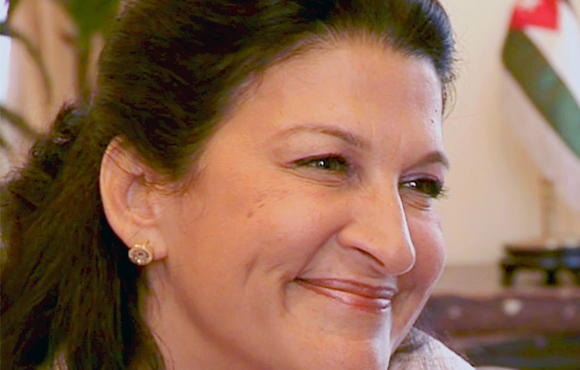
International tourism is slowly gaining momentum following an extremely difficult 2009. In your opinion, what is the global tourism outlook for 2010-2011 and especially in the Middle East?
At the beginning of 2009 when all the ministers were gathered at tourism exhibitions and fairs all over the world, it looked a little bit gloomy because the global financial crisis was actually gaining momentum and the impact was slowly showing on all sectors, specifically on tourism.
All the numbers were showing that tourism was going to be slow and dark, and the growth rate that was expected for the Middle Eastern regions- which had been doing extremely well in 2008 – was slowing down. We were scared and concerned and we did not want to raise expectations of the sector and we started taking action to face what was coming.
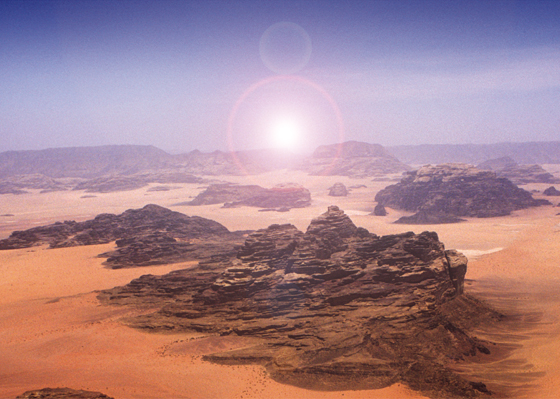
Fortunately, Jordan did not really witness that slow down. The whole Middle East showed that the tourism sector in the Middle East was much more resilient than we thought it was and in Jordan, unlike many countries in the Middle East, we maintained the same results as 2008 which were extremely good. The growth momentum went on and on. In 2009, the problem was that all countries in the world were unable to get confirmed reservations ahead of time. There was a “last-minute” trend in tourism that year; last minute bookings, which caused a lot of confusion and discomfort. But later on, even that trend vanished.
What were some of the strategies you undertook to deal with this?
We developed a strategy in 2004 that was meant to cover until 2010, and that was a private-public partnership. The strategy was very well-designed and prepared. We were just following the strategy. At a certain point, when we felt the global crisis would really affect the tourism sector, we thought maybe we should push for more support for the private sector, so the government decreased the VAT on the tourism sector, and specifically on hotel rooms, by 50%.
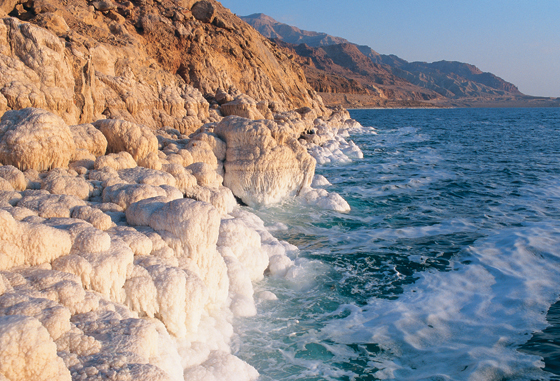
We were able to give some exemptions from custom duties on a number of goods and services related to tourism. We took a wise direction towards the Arab world where we started offices in the GCC countries – a primary market – and we wanted to put emphasis on the Arab markets. The results of all of this were very good.
What is the agenda of the Ministry for 2010 and 2011? What is the next strategy that is going to be designed after 2010?
“The current strategy ends 2010, and we already
surpassed the target by 35% in terms of revenues.
The target was 1.9 billion JD in revenues,
and eight months ago we reached that number.
We are actually doing much better than expected.
We are updating the strategy together with the
private sector to cover from 2011 to 2015″
We do realize that the numbers of tourists and revenues were doing well, however, we do believe that we need to put a lot of effort in developing our product to cater to many markets and not just the European and American markets, such as the Arab market, or the South American market.
We are now working on a different vision related to site management of our cultural and archeological sites. We tend to go more towards public-private partnerships in terms of delivering services on-site. We are also trying together with the private sector to develop additional products in some areas of Jordan that are still poor in some services, like hotel rooms and restaurants, especially in the North.
We have a beautiful, green North of Jordan that is under-tapped. We are looking at all tourism programs that make sure there is a trickle-down effect on the community. Unless we make sure that local communities are benefitting from tourism, this will only be a private-sector or industry-oriented sector, which we do not want. We are working on twelve local community tourism trails.
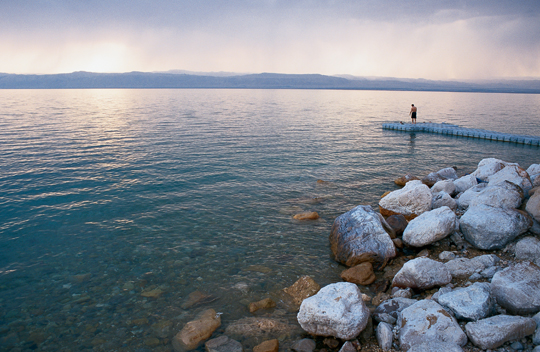
We have finished two already, one in the North that is an eco-tourism trail, through the forest dotted with little villages and ways to get involved. The other is a heritage trail through the city of Salt which is a beautiful downtown with 1100 old houses that will be renovated by their owners. The owners will be part of the historical trade. So we’re looking at communities, their involvement and benefit coming from tourism.
You mentioned there is a difference between European and Arab tourists. How do you structure your communication strategies towards these two markets? What are the needs of these two different groups?
There are common needs but there are a lot of different needs as well. The common needs are basically the variety of services, or destinations. Both of them tend to like the cultural and archeological, although Europeans and Americans do tend to favor the cultural part more than Arabs because even the seasonality of both groups is different.
We have beautiful weather in the summer in Jordan; there is no humidity, and that is why we get a lot of Arabs during the summertime. Arabs tend to be families, they like Jordan because it is very similar to their traditions and culture so we need to cater to families: entertainment, shopping, a lot of nightlife. The Europeans mostly come in groups; they have a fixed program, and I think we cater well to that group. Arabs are a little bit more demanding; we need to develop a lot of entertainment around the destinations that they come to.
They are higher spenders wherever they go, but at the same time they are very demanding. The way we promote Jordan in the Arab countries is very different from the way we promote it in Europe and the US. For example, we have festivals that happen in the summer. This is an excellent way to attract Arab tourism. We get a lot of singers, and folkloric dances.
Arabs tend to like to spend a lot of time at coffee shops, restaurants, and they tend to stay around Amman. Europeans travel the whole country and spend time at Petra. We are trying to encourage Arab tourists to spend more time at important sites like Petra, Jerash, and Umm Qais, but it’s still weak in terms of numbers.
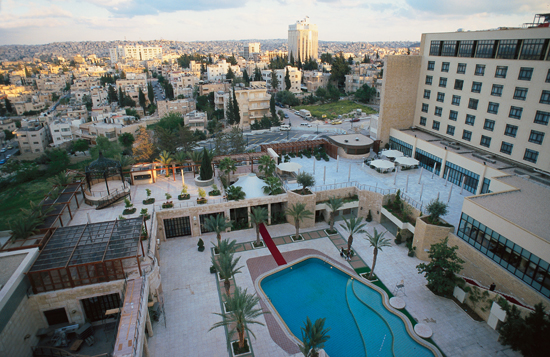
Jordan has one of the richest cultures in the Middle East. How would you brand Jordan; what is it associated with or what does it stand for?
I think Jordan stands for a country that encompasses so many attractive elements: culture, archeology, weather, eco-tourism, in a beautiful combination that is very welcoming to guests. The Jordanian people are extremely hospitable, and they like to see people coming to their country. We tend to feel that these people should be treated as if they were Jordanians.
This country is very safe and differs from the stereotype that is known about the Middle East. You don’t find many countries that have the lowest spot on Earth, with about 28 degrees in winter where you can easily swim, and 25 or 30 minutes away from the Dead Sea are areas that have snow! This proximity gives it a very special flavor.
What is your main worry as a Minister?
We have so many concerns, pertaining to making sure that we are keeping up to the high level of service. The problem in Jordan is that this tourism sector produces around 5,000 job opportunities per year because investments are going on really well in this sector.
The problem is that our educational system related to the tourism sector produces around 30,000 of not very-well trained staff. We have a lot of job opportunities but we don’t have the proper supply for them from Jordanians. What we are trying to do now is to really put a lot of emphasis on training, on education, on hospitality and any other related fields.
Unless we make sure that the sector absorbs the number needed from Jordanians, we will not be very satisfied and comfortable.
How about external factors? Are there challenges related to spreading the message about Jordan and sharing the story of Jordan?
I would like to make sure that people out there in the world realize and appreciate that Jordan is not just another country in the Middle East. It is a country that enjoys maybe the highest level of security, safety and tolerance. You can easily find a woman with a veil and a woman with shorts at the same place. There are no inhibitions related to Westerners.
This is a country that is modern but still able to preserve its cultural identity. This beautiful combination of modernity and authenticity gives Jordan a very special flavor. Our monarchy is doing a great job in terms of promoting this image of the young energetic leadership and people. This is a young population, and our monarchy suits very well the fabric of the Jordanian society.
This country has beautiful weather year-round and it is a very tolerant society for all other cultures.
If you had a magic wand, what would you have done? What is your long-term vision for the Ministry and for Jordan? What would you like to have achieved?
I would like to maintain and protect all the wealth of 250 thousand archeological sites in Jordan, and to ensure that whichever number of visitors visit them it will not negatively affect them. We are trying to strike that balance between protecting our archeological sites and making them accessible to people.
This is the challenge and this is where I would like to see success. I hope the new model with the private sector will bring light to that vision.